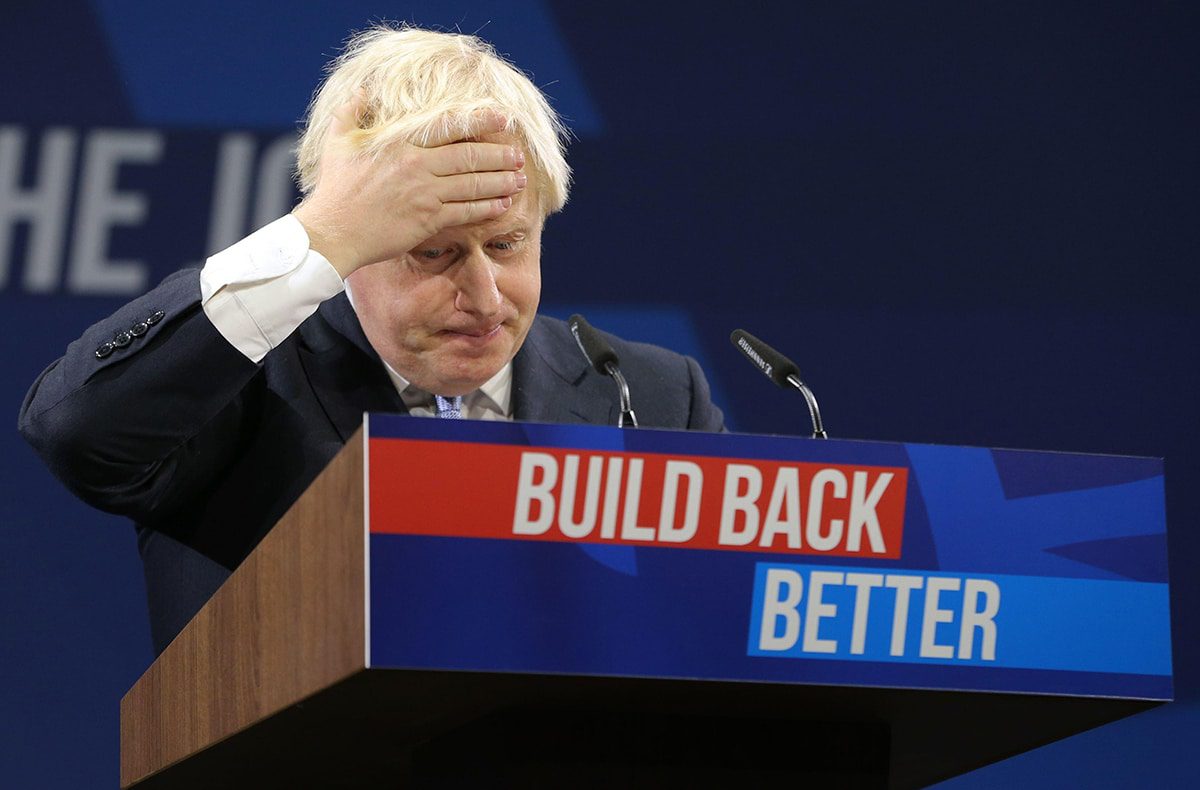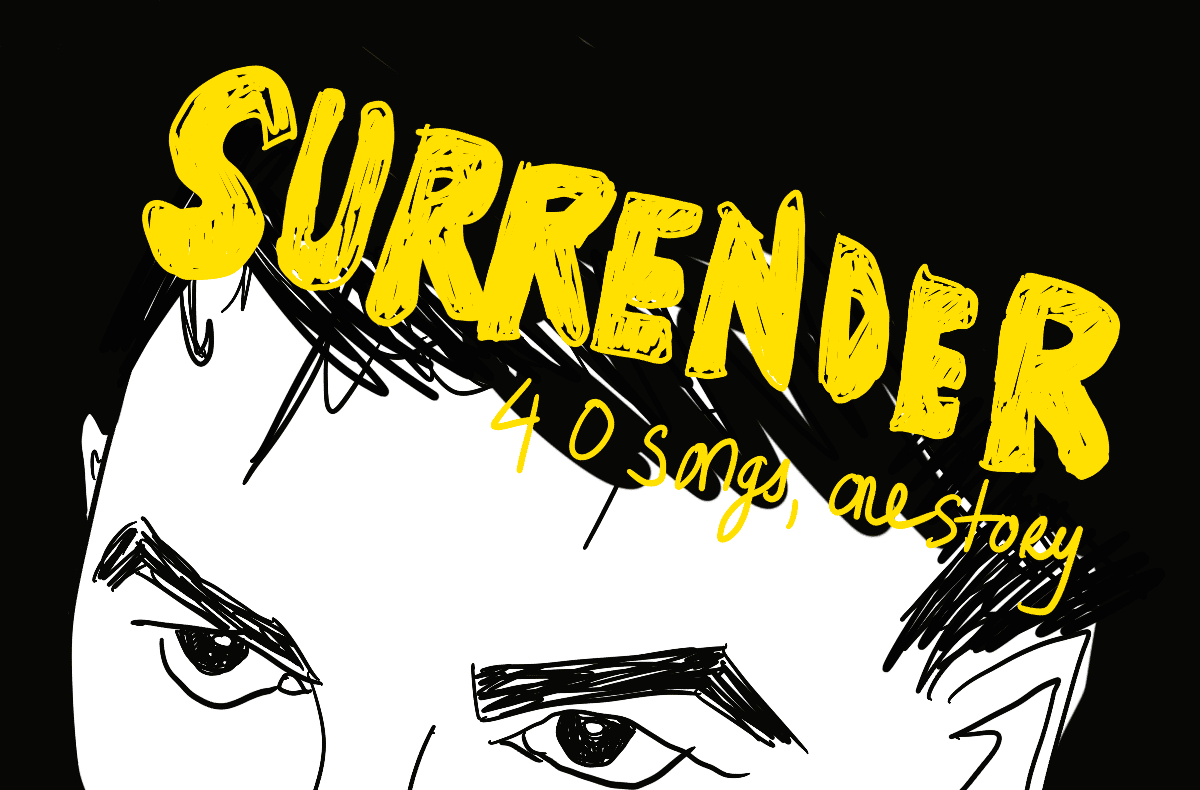
Several days after Boris Johnson’s step-down from the position of British Prime Minister, and it’s like we’ve risen from a fever dream (though maybe only briefly).
Partying with cheap wine at No. 10, while lockdowns kept loved ones apart, even in their final hours? Giving friends, girlfriends and party donors exclusive business deals, so they could profit from COVID? Appointing a senior political staffer who ended up sexually harassing a junior – when Johnson already knew he had a record as a sex pest? Trying to use the Queen’s non-democratic powers to force through a hard Brexit? Wake me up!
Which brings up Brexit itself. A costly, destructive act of self-harming exceptionalism, with the galumphing, straw-haired Johnson as Enthusiast-In-Chief. The same antic spirit helped win his Conservative Party an 80-seat Parliamentary majority in 2019. The slogan “Take Back Control” was answered with “Get Brexit Done”.
Yet as many have noted — with tariffs and bureaucracy clogging up UK business; with peace treaties in Northern Ireland rubbing up against buccaneering free trade; with immigration continuing to rise — Brexit has barely been “done” at all.
The British pundits regularly use an irksome metaphor, coined by Johnson himself. How did BoJo manage to “spaff” his recent election victory “up a wall”? How could the toddler who declared he wanted to be “World King,” who soaked himself in the born-to-rule ethos of Eton and Oxford, and who later styled himself after both Pericles and Churchill, so badly (to borrow another of his favourite epithets) fuck it all up?
It’s tempting to pin it mostly on COVID. In his mid-December General Election victory, a month or so before the WHO declared a pandemic on January 30th, Johnson was ready to cheerlead a Brexit renaissance. Working-class constituencies in the North of England had switched loyalty from Labour to the Tories, known as the “Red Wall.” They were convinced by Johnson’s promises that they’d be economically “levelled up,” compared to the booming London and the South.
Johnson’s policy guru, Dominic Cummings, had revolutionary plans — both for public spending on sci-tech, and for a clear-out of sclerotic (in his view) state bureaucrats. And all of it was to be shilled by the entertainer happily stuck on a zip wire, waving his paper Union Jack flags.
But then Coronavirus rolled into town, the very opposite of a renaissance — literally, more like a medieval plague. A serious case has been made that Johnson’s unwillingness to impose a quarantine on his freedom-loving Brexit-compatriots, delaying it by a week compared to other countries, resulted in more than 20,000 unnecessary deaths.
Yet he did contract the virus himself, becoming gravely ill; and he did mobilise the UK’s leading biomedical companies and centres of excellence, who speedily produced and distributed vaccines across the population. This did, indeed, lead the world (and hinted at that elusive Brexit swagger).
You might imagine that British voters would cut any leader some slack, and grant them their partial successes. This situation had ripped up every government’s predictions. But two very British things met — and exploded — to produce Johnson’s clownfall.
On Boris’s side, his sense of sheer entitlement, deeply conditioned by circumstances and character, meant a cavalier approach to the COVID rules. Ones that he himself had set for the rest of the population.
A master of Johnson’s at Eton once commented: “I think he honestly believes that it is churlish of us not to regard him as an exception, one who should be free of the network of obligation which binds everyone else.” So it continued to prove, as the dancing, fighting, and puking at 10 Downing Street during national quarantines demonstrated.
But on the public’s side, the spectacle of Partygate — as it was nicknamed — touched one of the electric rails of collective morality in Britain. In short, we hate queue jumpers: those who don’t abide by or flaunt the rules that maintain order and civility on these stuffy, crowded islands.
COVID imposed a stressful and weird new social order on everyone. Facing this, the irreverent, improvisational and convivial virtues of Johnson became his vices. It doesn’t work to act on your hunches, or test the air of public feeling, when epidemiologists are sternly urging you to command mask-wearing and clear the streets.
Boris’s schtick of funny lines and premature optimism were, at the least, inappropriate. It’s interesting to compare Boris’s reputation here with that of Scotland’s First Minister, Nicola Sturgeon. Policy-wise, she moved largely in lockstep with Westminster’s COVID decisions. But she presented herself daily with much more sobriety and caution, and came out of the crisis politically enhanced.
So the elastic between Boris, the public and his party had already stretched to breaking point — the sexual harasser only made it go ping. But the Tories in the UK aren’t the world’s most successful political party for nothing.
Once Johnson descended into pariah status, and threatened to damage the Tories’ electoral prospects in 2024, he was swiftly removed from office (as Tory PMs past their sell-by date often are). A parade of unlovely successors is currently on display.
Late last year, his ex-guru Cummings reported that Johnson, gripped by boredom in the early days of COVID, wondered if he could keep writing “his Shakespeare book.” There’s more time for that now.
Boris may well ponder the line from Henry VIII: “My endeavours have ever come too short of my desires/Yet filed with my abilities.”
Or better yet, from Richard III: “Woe to the land that’s governed by a child!”


